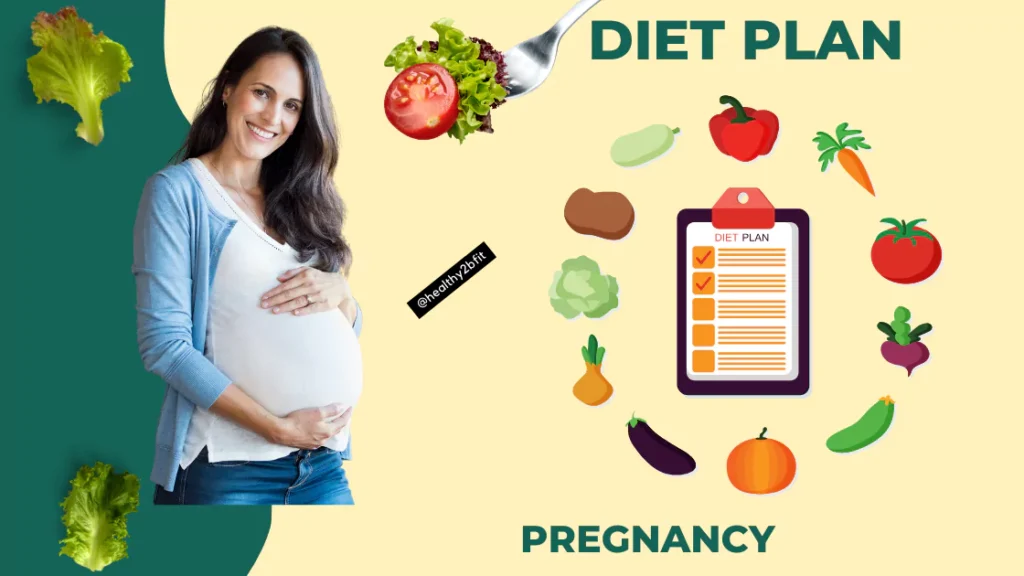Pregnancy Diet Plan
Nourish Your Baby and Your Body with Our Expert Pregnancy Diet Plans
Balanced and Healthy Diet Plans for Every Stage of Your Pregnancy
Get the best nutrition for you and your baby with our personalized pregnancy diet charts.
Why a Specialized Pregnancy Diet Plan is Essential For You
Eating well during pregnancy is essential for both you and your baby’s health. At Healthy2Bfit, we make personalized diet plans to ensure you get the vital nutrients at every stage of your pregnancy. Our pregnancy diet charts are designed to support your well-being, aid in your baby’s development, and improve your pregnancy journey.
Benefits of Our Pregnancy Diet Plans

Nutrient-Rich Meals
We prioritize essential nutrients for both you and your baby’s well-being.

Stage-Specific Plans
We give you personalized diet charts for each month of your pregnancy.

Balanced Diet
Manage a healthy weight and maintain optimal energy levels with our diet plans.

Expert Advice
Benefit from professional guidance provided by experienced dieticians specializing in pregnancy nutrition.
How Our Pregnancy Diet Program Works

Initial Consultation
Have an in-depth discussion about your health, dietary preferences, and pregnancy stage with our experienced dieticians.

Personalized Wellness
Receive a customized diet chart designed to support your well-being and nurture your baby throughout your pregnancy journey.

Ongoing Support
Benefit from continuous guidance and necessary adjustments to your diet as you progress.

Healthy Pregnancy
Follow your plan diligently to ensure optimal nutrition and well-being for both you and your baby.
Sample Pregnancy Diet Chart (1 to 3 Months)
Day 1 Example:
Breakfast : Moong dal cheela with a glass of fortified milk.
Mid-Morning Snack : A handful of walnuts and an apple.
Lunch : Spinach dal with brown rice and a side of mixed vegetable sabzi.
Evening Snack : A bowl of yogurt with a sprinkle of chia seeds.
Dinner : Whole wheat roti with paneer curry and steamed broccoli.
Note: Each diet chart is customized to meet your specific needs throughout your pregnancy timeline. Connect with us on Facebook now!

Hear from Our Satisfied Mothers

Neeraj Sharma

Roop Matharoo

Rajni Kamboj

Pooja Mahajan

Lakhwinder kaur

Kirti Wandile-Chandankhede

Gurpreet Ghumaan

Daman Bindra
Lay the foundation for your baby’s well-being
Get Your Personalized Diet Plan Now
Take the first step towards a healthy pregnancy with our expert diet plans.
Book Appointment Contact UsFrequently Asked Questions
A pregnancy diet chart ensures you get the essential nutrients needed for your baby’s development and your own health during pregnancy.
Yes, our diet plans are fully customized to accommodate your dietary preferences and nutritional needs.
Your diet plan will be updated periodically to match the changing nutritional requirements of each stage of your pregnancy.
Yes, our diet plans are designed to be safe and beneficial for all trimesters of pregnancy.
